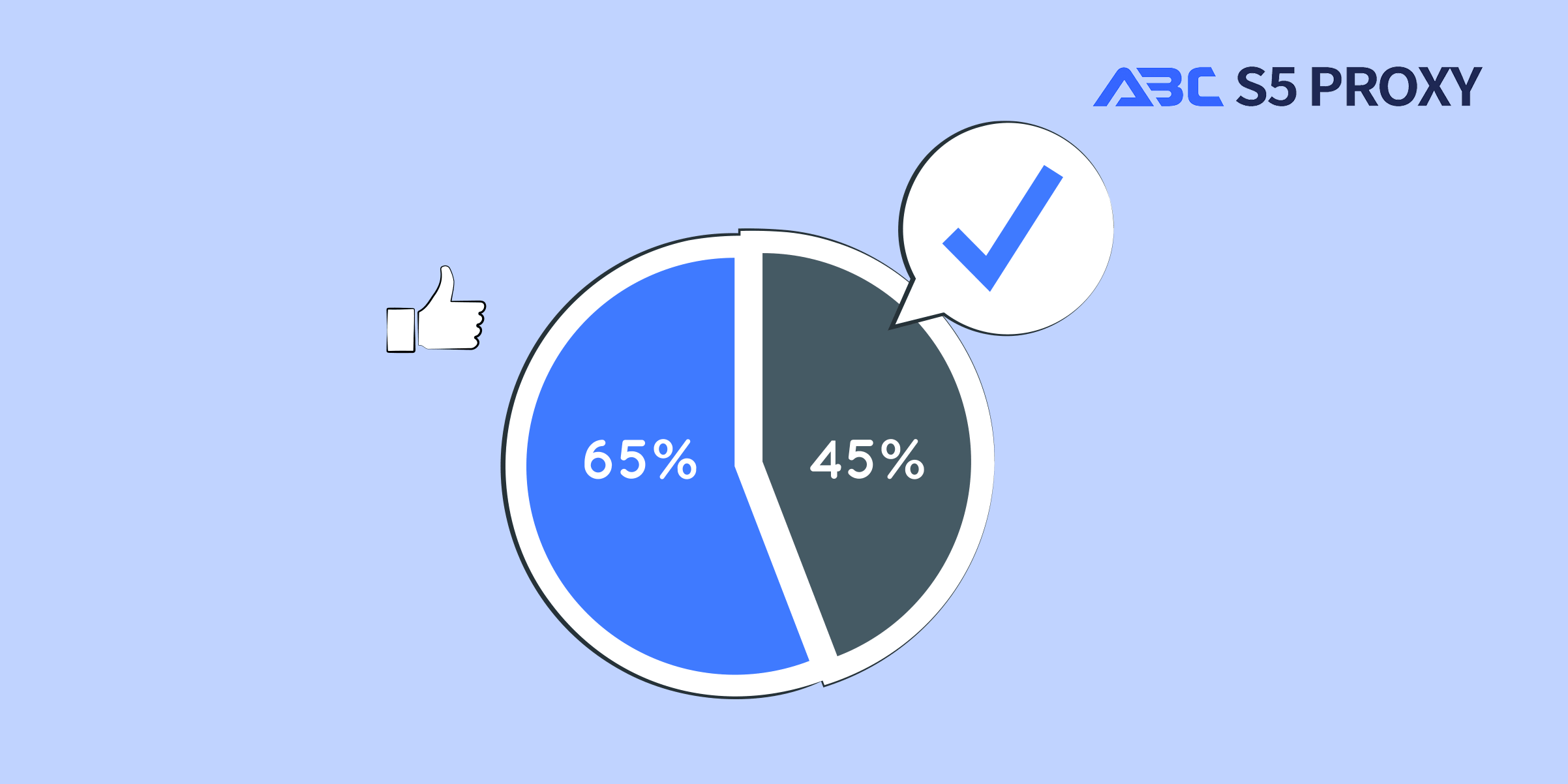Residential Proxies
Allowlisted 200M+ IPs from real ISP. Managed/obtained proxies via dashboard.

Proxies Services
Residential Proxies
Allowlisted 200M+ IPs from real ISP. Managed/obtained proxies via dashboard.
Residential (Socks5) Proxies
Over 200 million real IPs in 190+ locations,
Unlimited Residential Proxies
Unlimited use of IP and Traffic, AI Intelligent Rotating Residential Proxies
Static Residential proxies
Long-lasting dedicated proxy, non-rotating residential proxy
Dedicated Datacenter Proxies
Use stable, fast, and furious 700K+ datacenter IPs worldwide.
Mobile Proxies
Dive into a 10M+ ethically-sourced mobile lP pool with 160+ locations and 700+ ASNs.
Scrapers
Collection of public structured data from all websites
Proxies
Residential Proxies
Allowlisted 200M+ IPs from real ISP. Managed/obtained proxies via dashboard.
Starts from
$0.6/ GB
Residential (Socks5) Proxies
Over 200 million real IPs in 190+ locations,
Starts from
$0.03/ IP
Unlimited Residential Proxies
Unlimited use of IP and Traffic, AI Intelligent Rotating Residential Proxies
Starts from
$1816/ MONTH
Static Residential proxies
Long-lasting dedicated proxy, non-rotating residential proxy
Starts from
$4.5/MONTH
Dedicated Datacenter Proxies
Use stable, fast, and furious 700K+ datacenter IPs worldwide.
Starts from
$4.5/MONTH
Mobile Proxies
Allowlisted 200M+ IPs from real ISP. Managed/obtained proxies via dashboard.
Starts from
$1.2/ GB
Scrapers
Web Unblocker
Simulate real user behavior to over-come anti-bot detection
Starts from
$1.2/GB
Serp API
Get real-time search engine data With SERP API
Starts from
$0.3/1K results
Scraping Browser
Scale scraping browsers with built-inunblocking and hosting
Starts from
$2.5/GB
Documentation
All features, parameters, and integration details, backed by code samples in every coding language.
TOOLS
Resources
Addons
ABCProxy Extension for Chrome
Free Chrome proxy manager extension that works with any proxy provider.
ABCProxy Extension for Firefox
Free Firefox proxy manager extension that works with any proxy provider.
Proxy Manager
Manage all proxies using APM interface
Proxy Checker
Free online proxy checker analyzing health, type, and country.
Proxies
AI Developmen
Acquire large-scale multimodal web data for machine learning
Sales & E-commerce
Collect pricing data on every product acrossthe web to get and maintain a competitive advantage
Threat Intelligence
Get real-time data and access multiple geo-locations around the world.
Copyright Infringement Monitoring
Find and gather all the evidence to stop copyright infringements.
Social Media for Marketing
Dominate your industry space on social media with smarter campaigns, anticipate the next big trends
Travel Fare Aggregation
Get real-time data and access multiple geo-locations around the world.
By Use Case
English
繁體中文
Русский
Indonesia
Português
Español
بالعربية

Scraping data from search engines can be a powerful tool for various purposes such as market research, SEO analysis, and competitive intelligence. In this blog post, we will focus on how to scrape Bing search results using Python. Bing, as one of the major search engines, provides valuable data that can be extracted and analyzed to gain insights and make informed decisions.
Web scraping is the process of extracting information from websites. Bing, similar to other search engines, displays search results based on specific queries entered by users. By scraping Bing search results, we can gather data such as URLs, titles, descriptions, and other relevant information.
Python is a popular programming language for web scraping due to its simplicity and the availability of various libraries such as BeautifulSoup and requests. These libraries make it easier to fetch web pages, parse HTML content, and extract the desired information.
To start scraping Bing search results with Python, you first need to install the required libraries using pip:
```python
pip install requests beautifulsoup4
```
Next, you can create a Python script to fetch search results from Bing. Here is a basic example of how you can do this:
```python
import requests
from bs4 import BeautifulSoup
search_query = "your search query"
url = f"https://www.bing.com/search?q={search_query}"
response = requests.get(url)
soup = BeautifulSoup(response.text, 'html.parser')
# Extract and process the search results here
```
After fetching the search results page using Python, the next step is to extract the relevant information. This may include the titles of the search results, URLs, descriptions, and other metadata. It's important to parse the HTML structure of the Bing search results page to locate and extract the desired data.
In many cases, search results are paginated, meaning that you need to navigate through multiple pages to scrape more results. You can automate this process by identifying and clicking on the "Next" button or link to fetch additional search results.
Once you have extracted the desired information from Bing search results, you can store the data in a structured format such as a CSV file or a database. This data can then be analyzed to identify patterns, trends, or key insights that can be useful for your specific use case.
When scraping Bing search results or any other website, it's important to follow ethical guidelines and respect the terms of service of the website. Avoid making too many requests in a short period of time, as this can overload the server and potentially get your IP banned.
In conclusion, scraping Bing search results with Python can provide valuable data for various purposes. By understanding the basics of web scraping, parsing HTML content, and extracting information, you can automate the process of gathering data from Bing search results. Remember to always comply with ethical standards and use the scraped data responsibly.
Featured Posts
Popular Products
Residential Proxies
Allowlisted 200M+ IPs from real ISP. Managed/obtained proxies via dashboard.
Residential (Socks5) Proxies
Over 200 million real IPs in 190+ locations,
Unlimited Residential Proxies
Use stable, fast, and furious 700K+ datacenter IPs worldwide.
Residential (Socks5) Proxies
Long-lasting dedicated proxy, non-rotating residential proxy
Dedicated Datacenter Proxies
Use stable, fast, and furious 700K+ datacenter IPs worldwide.
Web Unblocker
View content as a real user with the help of ABC proxy's dynamic fingerprinting technology.
Related articles

Unlocking the Power of ABCproxy Integration: Web Crawler Use Cases Revealed
Learn about the meaning of Web crawler and how ABCproxy integration enhances its use cases. Explore the benefits of combining these tools for efficient web scraping and data extraction.

Scrape Bing Search Like a Pro: Python Techniques for Success
Are you looking to gather data from Bing search results using Python? Learn how to scrape Bing search effortlessly with Python in our latest blog post. Discover the steps and tools needed to efficiently extract the information you need. Level up your web scraping skills today!

Exploring the Benefits of Structured Data Versus Unstructured Data
Title: Structured vs Unstructured Data: Understanding the DifferencesIn the world of data analysis, a common distinction is made between structured and unstructured data. Understanding the differences between these two types of data is crucial in harnessing their respective potentials for extracting insights and making informed decisions.Structured data refers to information that is organized in a predefined format, making it easily searchable and analyzable. This type of data is typically found in databases, spreadsheets, and other structured systems. Examples of structured data include customer information, financial records, and inventory lists. Due to its organized nature, structured data is highly suitable for traditional data analysis techniques such as SQL queries and statistical analysis.On the other hand, unstructured data does not adhere to a specific format or structure, making it more challenging to process and analyze. Examples of unstructured data include text documents,